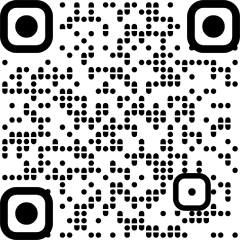In a statement that straddles science fiction and near-future reality, Scale AI founder Alexandr Wang has revealed he’s putting off parenthood—for now.
But not because of career demands or personal timing. His reason? He’s waiting for Elon Musk’s Neuralink to become mainstream. Yes, Wang wants his future children to be among the first humans enhanced by brain-computer interfaces from birth.
During a recent appearance on The Shawn Ryan Show, the 28-year-old tech prodigy shared a vision that feels pulled from the pages of a futuristic novel.
“When we get Neuralink and we get these other technologies, kids who are born with them are gonna learn how to use them in like crazy, crazy ways,” Wang said, explaining that the first seven years of life—when neuroplasticity is at its peak—present the most fertile ground for integrating superintelligence into the human experience.
Neuralink, Meet Nature
Neuralink, founded by Elon Musk, is currently trialing a brain-chip implant the size of a coin. Though still in early clinical stages, the device has already shown stunning potential: one patient with ALS reportedly edited a video using only his mind. But Neuralink isn’t alone.
Synchron, backed by heavyweights like Jeff Bezos and Bill Gates, is collaborating with Apple to help patients with disabilities use iPhones through brain signals. Motif Neurotech, another contender, is developing a neurostimulator that treats severe depression and functions like a pacemaker for the brain.
Wang, who is also taking on a new role at Meta to lead its superintelligence initiatives, seems to believe these brain-machine hybrids are not just medical miracles—they are the future of human learning, cognition, and possibly even evolution.
Born to Compute?
His vision hinges on a well-documented trait: the astonishing neuroplasticity of young brains. A 2009 study published in Brain Dev. found that children’s brains, particularly in the early years, are primed for adaptation.
This plasticity not only helps kids learn languages or recover from injury but, in Wang’s vision, could also help them learn how to “think” alongside or even through artificial intelligence.
It’s a radical idea—one that flips the conventional approach to parenting. Instead of shielding children from screen time or tech overload, Wang imagines a future where babies are born wired for the digital age, quite literally.
Ethics, Science, and the Silicon Valley Dream
As startling as Wang’s perspective may seem, it’s emblematic of a growing mindset in tech circles: that human limitations are solvable problems.
But while Wang may be planning for AI-enhanced progeny, ethical concerns continue to hover over Neuralink and its competitors—from long-term brain health to consent, privacy, and the ever-blurring boundary between human and machine.
Still, in a world racing toward a post-human horizon, Alexandr Wang’s statement isn’t just provocative—it might be prophetic. The question isn’t whether Neuralink babies will happen. It’s who dares to go first. And Wang, it seems, is ready to raise the world’s first AI-native child—as soon as the software is ready.
- Published On Jun 16, 2025 at 03:01 PM IST
Join the community of 2M+ industry professionals.
Subscribe to Newsletter to get latest insights & analysis in your inbox.
All about ETHealthworld industry right on your smartphone!






